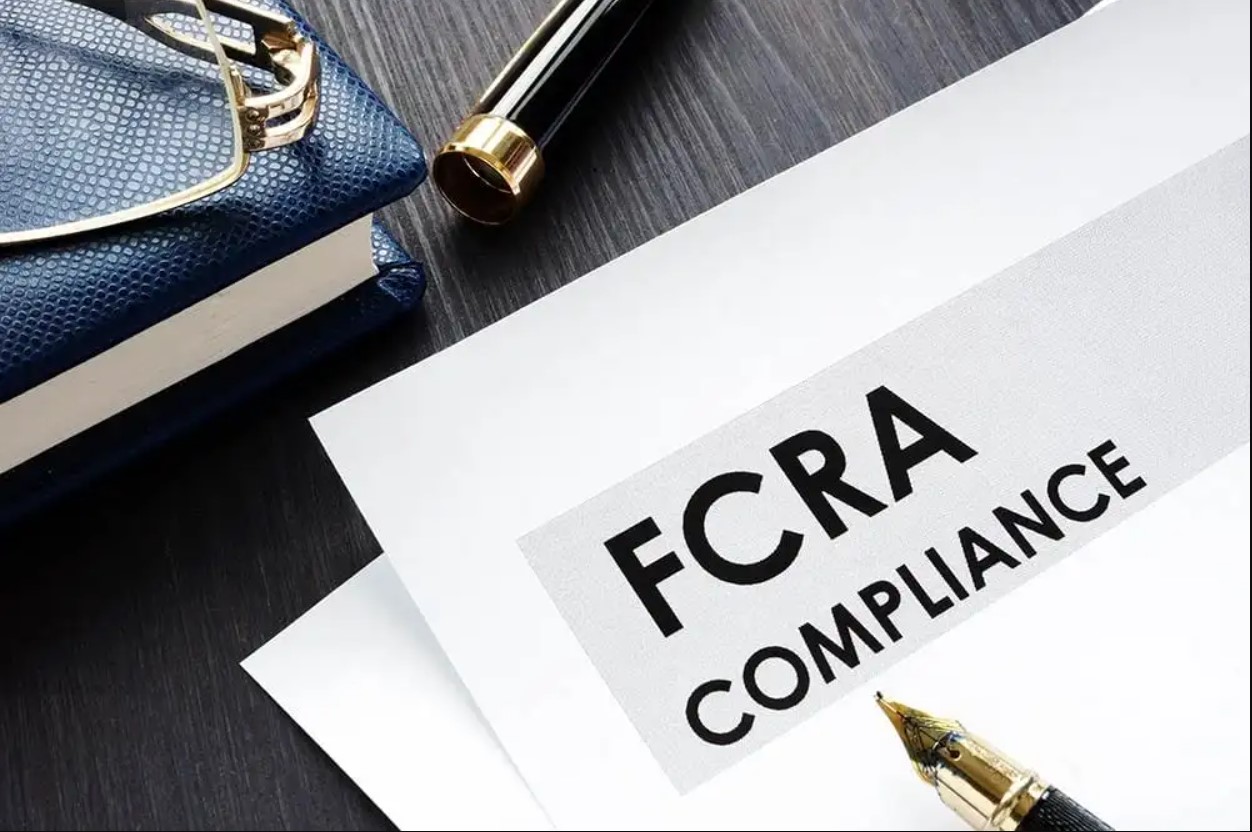
It is more crucial than ever to maintain a favorable brand image and reputation in the fast-paced, constantly-evolving business environment of today.
One key aspect is ensuring compliance with the Fair Credit Reporting Act (FCRA), which governs how businesses handle consumers’ credit information.
FCRA compliance not only protects consumers’ rights to accurate credit reporting, but it also has a significant impact on a business’s branding and reputation.
In this article, we will explore the importance of FCRA compliance in branding for businesses and consumers.
We’ll talk about the conditions for compliance, what happens if you don’t comply, and how it affects your credit.
What is FCRA Compliance?
The Fair Credit Reporting Act (FCRA) is a federal law that regulates how businesses handle consumers’ credit information.
FCRA compliance is important for businesses and consumers, ensuring that credit reporting is accurate, fair, and transparent.
Here are some key aspects of FCRA compliance:
- Obtaining consent: Businesses must obtain written consent from consumers before obtaining their credit report or background check. The consent must be clear, conspicuous, and separate from other documents or agreements.
- Disclosure: Businesses must provide consumers with clear and concise disclosure of their rights under FCRA, including the right to dispute inaccurate information on their credit reports.
- Accuracy: Businesses must ensure that the information they report to credit bureaus is accurate and up-to-date. They must investigate and correct any errors that are brought to their attention.
- Security: Businesses must take reasonable measures to protect consumers’ credit information from unauthorized access or disclosure.
- Recordkeeping: Businesses must maintain records of their compliance with FCRA regulations.
Non-compliance with FCRA regulations can result in legal action, including lawsuits and fines. It can also damage a business’s reputation and branding. On the other hand, businesses that prioritize FCRA compliance can improve their reputation and build trust with consumers.
Consumers also benefit from FCRA compliance, as it gives them the right to accurate credit reporting and the ability to dispute errors on their credit report.
This can have a significant impact on their credit score and their ability to obtain credit.
If a business is facing legal action related to FCRA compliance, it may benefit from seeking the advice of experienced Certified FCRA attorney. FCRA attorneys can help businesses understand their legal obligations and represent them in legal proceedings if necessary.
FCRA Compliance and Branding for Businesses
FCRA compliance is not only important for legal reasons, but it can also have a significant impact on a business’s branding and reputation.
By prioritizing FCRA compliance, businesses can establish themselves as trustworthy and responsible entities that prioritize consumer rights.
Here are some ways in which FCRA compliance can impact branding for businesses:
- Positive customer perception: Consumers are more likely to trust businesses that prioritize FCRA compliance and prioritize accurate credit reporting.
- Reduced legal risks: By adhering to FCRA regulations, businesses can avoid legal action and the associated negative publicity.
- Competitive advantage: FCRA compliance can give businesses a competitive edge by demonstrating their commitment to responsible practices and consumer rights.
- Improved credit scores: Ensuring the accuracy of credit reporting can result in improved credit scores for consumers, which can lead to increased business for lenders and other financial institutions.
For example, a financial institution that prioritizes FCRA compliance may use this as a selling point in its marketing and advertising materials, emphasizing its commitment to accurate and responsible credit reporting.
By doing so, they can differentiate themselves from competitors and build trust with consumers.
Overall, FCRA compliance can be a valuable tool for businesses to establish themselves as responsible entities that prioritize consumer rights and ensure accurate credit reporting.
FCRA Compliance and Consumer Rights
The FCRA is primarily designed to protect the rights of consumers when it comes to their credit reporting. By adhering to FCRA regulations, businesses can ensure that they are providing accurate and fair credit reporting to consumers.
Here are some ways in which FCRA compliance can impact consumer rights:
- The right to dispute inaccurate information: Consumers have the right to dispute any inaccurate information on their credit reports and have it corrected or removed.
- The right to access their credit reports: Under the FCRA, consumers have the right to obtain a free credit report from each of the major credit bureaus once per year.
- The right to consent: Businesses must obtain proper consent before obtaining a consumer’s credit report or using it for any purpose.
- The right to privacy: The FCRA requires businesses to protect the privacy of consumer credit information and only share it with authorized parties.
By prioritizing FCRA compliance, businesses can ensure that they are respecting and upholding the rights of their consumers. This can lead to increased trust and loyalty from consumers, as well as positive word-of-mouth and brand reputation.
The Importance of FCRA Compliance for Credit Scores

FCRA compliance is also critical for maintaining accurate credit scores for consumers. Credit scores are used by lenders and other financial institutions to assess an individual’s creditworthiness and determine the terms of credit offers.
Inaccurate information on a credit report can lead to lower credit scores, which can have significant financial consequences for consumers.
Here are some ways in which FCRA compliance can impact credit scores:
-
Ensuring accuracy:
By adhering to FCRA regulations, businesses can ensure that the information on a consumer’s credit report is accurate and up-to-date.
-
The right to dispute inaccuracies:
Consumers have the right to dispute any inaccurate information on their credit reports, which can help to correct errors and improve credit scores.
-
Protection from identity theft:
FCRA regulations require businesses to protect consumer credit information from identity theft, which can negatively impact credit scores.
By prioritizing FCRA compliance, businesses can help to ensure that consumers have accurate and fair credit scores, which can lead to more favorable credit terms and better financial opportunities.
This can also help businesses to build trust with consumers and establish a positive brand reputation.
Bottom Line
In today’s business landscape, maintaining good credit is essential for both consumers and businesses.
FCRA compliance plays a critical role in ensuring that credit reporting is accurate and fair, which can have significant impacts on brand reputation and consumer trust.
Here are some key takeaways from this article:
- FCRA compliance is critical for maintaining accurate credit reporting:
Adhering to FCRA regulations can help businesses to ensure that the information they report is accurate and up-to-date, which can help to prevent financial harm to consumers and maintain positive credit scores.
- FCRA compliance can impact brand reputation:
By prioritizing FCRA compliance, businesses can establish themselves as trustworthy and ethical, which can lead to increased customer loyalty and positive word-of-mouth.
- FCRA compliance is important for protecting consumer rights:
Consumers have the right to dispute inaccurate credit reporting and protect their privacy, and businesses that prioritize FCRA compliance can help to ensure that these rights are upheld.
- FCRA compliance requires ongoing attention:
Compliance with FCRA regulations is an ongoing process that requires ongoing attention and updates to ensure that businesses are staying up-to-date with any changes to the law.
Overall, FCRA compliance is critical for both businesses and consumers when it comes to maintaining accurate credit reporting and protecting consumer rights.
By prioritizing FCRA compliance, businesses can establish themselves as trustworthy and ethical, which can lead to increased customer loyalty and a positive brand reputation.
Read More: 6 Key Elements to Consider When Designing a Logo for Branding





